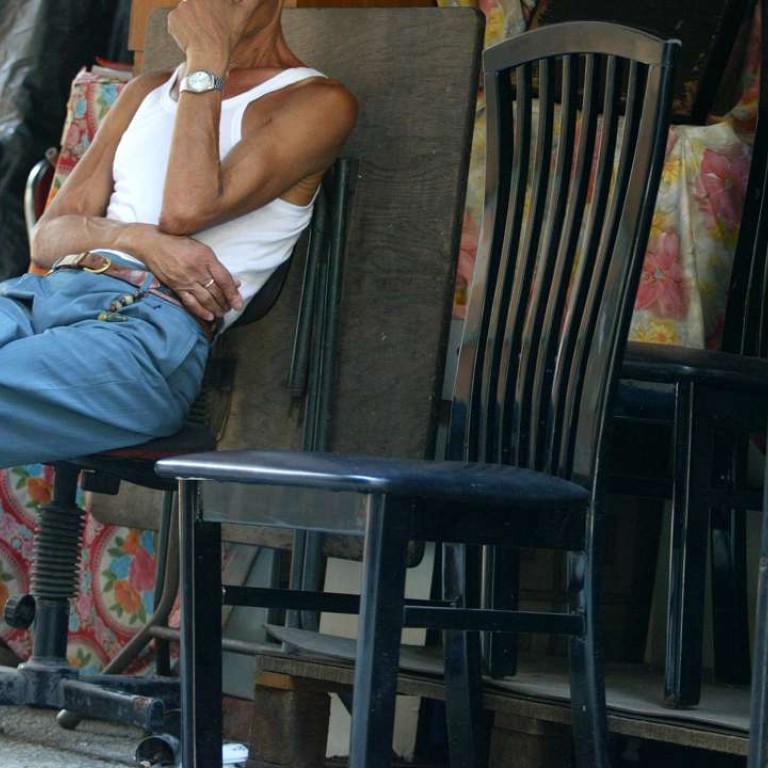
Social welfare sector sees HK$30 billion for elderly services and mentally ill
But administration unable to use the city’s first comprehensive relief funds in the remaining four months of its term as it awaits final report on study
HK$30 billion has been set aside to implement the city’s first comprehensive long-term elderly services plan and take extra care of mentally ill people who are often overlooked, according to the budget announcement on Wednesday.
But a government source said the administration would not have the chance to use the sum in the remaining four months of its term and that details on how the money is spent would be known after a report on a two-year study on elderly services was finished.
“This is a forward-looking approach,” the source said. “The money will not be used before the change in administration.”
A public consultation on the Elderly Services Programme Plan study, commissioned by government advisory group Elderly Commission and drafted by the University of Hong Kong, ended earlier this month.
The source said the government expected to receive the final report in the second quarter.
The draft plan recommended revising urban planning rules to require that every estate include elderly care facilities such as nursing homes. It also recommended introducing long-term health care insurance for the city’s ageing population to ease the government’s financial burden. It further urged strengthening services for elderly persons with dementia and considering the disease integral to planning elderly services.
The source said the government would start working on a new rehabilitation services plan for disabled persons after completing the elderly services plan.
Chan said the recurrent expenditure for social welfare was estimated to be HK$73.3 billion for 2017-18 – up HK$9.5 billion from the previous year.
This total included an additional HK$253 million of funding to add 149 subsidised places for elderly residential care and day care places, improve end-of-life services for nursing homes, and increase manpower in caring for those with dementia.
The government will offer an extra HK$176 million to provide 898 additional places for residential care, day training, vocational rehabilitation and pre-school rehabilitation for those who are disabled. The amount will also be used to boost manpower for mental wellness community centres.
An additional HK$582 million will be used to support children with special needs through kindergarten-based rehabilitation services and increasing the number of special child care centres.
Another government source said there were over 7,000 children with special needs waiting for a place in such centres and that each had to wait over 10 months. He said it was expected the extra fund could allow these children to receive help immediately by 2021.
Chan also proposed raising the disabled dependent allowance from HK$66,000 to HK$75,000.
From the next academic year, a further HK$35 million will also be allocated to a learning support subsidy for public school students who are mentally ill. The grant now targets students with special educational needs.
The short-term measures are able to provide some relief for the grassroots, but we’re still disappointed that the government still lacks any long-term policy planning
The change follows a series of tragedies involving people with disabilities or mental issues. In October last year, a 48-year-old mentally disabled man was found staying in a Sha Tin flat with the body of his mother, who died a week prior; he lacked food or care.
In April last year, a mother, 82,who lived with her autistic son, 55, in Sham Shui Po, was found to have been dead for six days.
In May 2014, the body of a mother, 76, who lived with her mentally disabled son, 40, in Sham Shui Po, was found after five days.
But Ng Wai-tung, of non-profit group Society for Community Organisation said the relief was inadequate and had hoped the budget would re-introduce a living allowance.
“The short-term measures are able to provide some relief for the grassroots, but we’re still disappointed that the government still lacks any long-term policy planning,” Ng said.
Ng said he hoped the budget would cover long-term measures such as re-introducing a living allowance, which was scrapped in September last year for those who do not live in public housing, receive any social handout, or own any property.
“There has been no talk of any rent control or universal retirement protection scheme,” Ng said.
Chan Fung-kam, 59, who falls under the category of “N-nothings”, said she was disappointed with the government’s budget.
“The measures do not benefit me or my family at all. But what choice do we have in this situation, even if it means eating congee all the time we’ll just have to pull through.”


